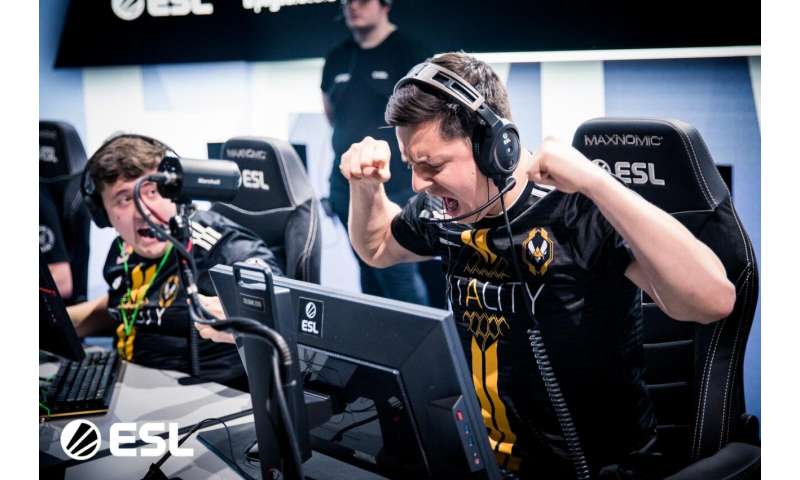

E-sports players competing in top-flight tournaments face the equivalent pressure and stress as professional athletes, researchers have revealed.
A study at the University of Chichester examined the psychological challenges encountered by elite esports professionals when competing in major contests, in what is the first investigation of its kind.
Researchers found that esports players faced 51 different stress factors—including communication problems and concerns with competing in front of live audiences—mirroring the mental conditions experienced by pro athletes including footballers and rugby stars in high-profile tournaments.
Study co-author Dr. Phil Birch, a senior lecturer in sport and exercise psychology at the University of Chichester, said: “Esports has become a multimillion-pound business attracting audiences worldwide, but there is little research into the psychological factors that influence players.
“We have discovered that gamers are exposed to significant stress when competing in top-flight contests. By isolating these stressors, we can help esports players develop effective coping strategies to deal with such stressors and optimise performance while playing at the highest level.”
Poor communication between teammates was identified as a key stressor among players when exposed to pressured environments. To manage the situation, said the research team, players either became overly aggressive to one-another or attempted to avoid communication altogether, which negatively impacted their performance.
The investigation, published in the International Journal of Gaming and Computer-Mediated Simulations, interviewed high-ranking players who compete in the increasingly-popular first-person shooter game Counter-Strike: Global Offensive.
Researchers also recommended that top esports players are given psychological training to learn practical coping techniques to help them more effectively prepare for the pressures of competing at elite levels.
Rob Black, the Chief Operating Officer at ESL, the world’s leading esports company, said: “As an industry we’ve known for a long time that stressors on top level players can negatively affect their performance.
“This study proves this and reinforces what we have been saying for years. Further developments are needed in this area, and that will be key in ensuring the number of professional players continues to grow worldwide.”
The study builds on the University of Chichester’s academic expertise in esports and its newly-launched BA (Hons) esports degree, which examines the impact of gaming through scientific study.
Students on the three-year course learn in an immersive gaming environment at the University’s new £35million Tech Park, which was recently opened by The Duke and Duchess of Sussex, and cover the physical and psychological impact of esports, including nutrition, coaching, and strategy.
Course leader Rams Singh, himself a former esports European champion, said: “esports is a developing area, but it is essential that it remains grounded in traditional academia to help us understand immersive gaming and its impact on mind and body.
Source: Read Full Article